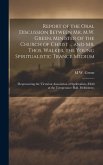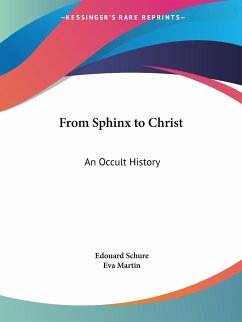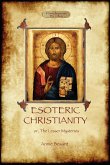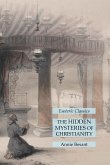"The World's Sixteen Crucified Saviors; Or, Christianity Before Christ" is a book written by Kersey Graves. It presents a comparative analysis of various religious and mythological figures from different cultures who share similarities with the story of Jesus Christ. Graves argues that these figures, including Horus, Mithras, Krishna, and others, predate Christianity and share common elements such as virgin births, crucifixion, and resurrection. The book challenges the uniqueness and exclusivity of Christianity by suggesting that the narrative of Jesus' life and death is not entirely original but draws upon earlier mythologies and legends. Graves explores the possibility of a universal human need for a savior figure and suggests that the story of Jesus Christ is a continuation of a long-standing mythological tradition. "The World's Sixteen Crucified Saviors" generated controversy and sparked debates upon its publication. While some scholars and critics question the accuracy and reliability of the comparative analysis presented by Graves, the book remains significant for its exploration of the historical and cultural context of religious stories and the influence of earlier traditions on Christianity.



![Are the Dead Alive?: The Problem of Physical [!] Research That the World's Leading Scientists Are Trying to Solve, and the Progress They Ha Are the Dead Alive?: The Problem of Physical [!] Research That the World's Leading Scientists Are Trying to Solve, and the Progress They Ha](https://bilder.buecher.de/produkte/64/64465/64465067m.jpg)




